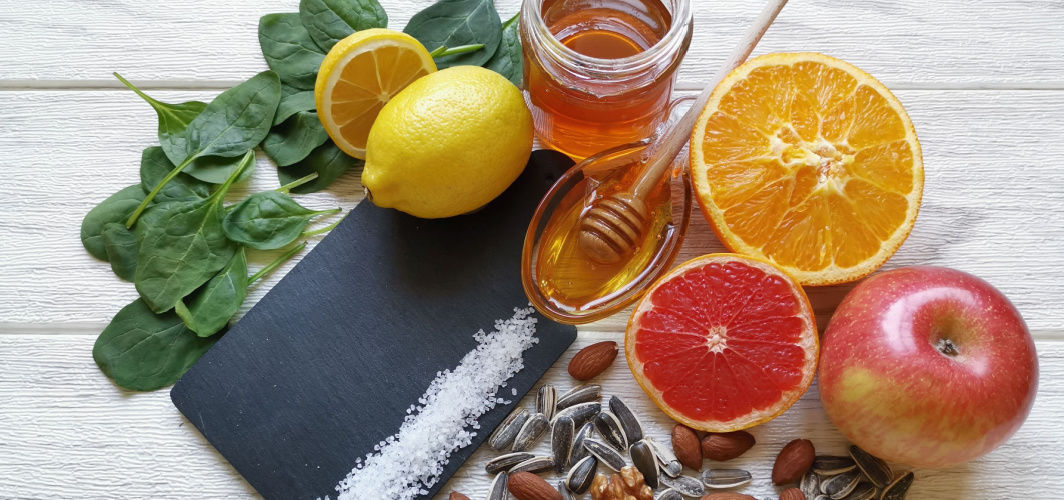General Health
Hypothyroidism Diet: Foods To Eat And Avoid
4 min read
By Apollo 24|7, Published on - 30 May 2023, Updated on - 06 August 2024
Share this article
0
0 like

Low thyroid hormone, medically called hypothyroidism, is the most common type of thyroid disorder diagnosed across the globe. In hypothyroidism, the thyroid gland in your body does not make enough thyroid hormone making you feel tired, gain weight, and experience mood changes. While medications are usually needed to treat low thyroid levels, maintaining your lifestyle is equally important to manage the condition effectively. It must be noted that some vegetables can interfere with thyroid hormone production and cause problems for people with low thyroid levels.
Avoid out-of-pocket healthcare expenses with Apollo 24|7's health insurance plan with premium as low as Rs.1 per day.
Foods to Avoid with Hypothyroidism
Here are five vegetables that people with hypothyroidism should be careful about:
1. Cruciferous vegetables
This group includes broccoli, cabbage, Brussels sprouts, cauliflower, kale, turnips, and bok choy. They are full of fibre and nutrients, but if you don't have enough iodine in the body, they may stop your thyroid from functioning normally. However, eating up to 5 ounces of these cooked vegetables daily is safe.
How to eat them: Cooking (steaming or roasting) these vegetables can reduce the compounds that interfere with thyroid function.
2. Spinach
Spinach is a leafy green vegetable with many vitamins and minerals, but it also has oxalates, which can stop your body from using iodine. You can cook spinach to reduce the oxalate level, but limiting your spinach intake is best if you have hypothyroidism.
How to eat them: Blanching spinach can help reduce the compounds that interfere with thyroid function while keeping its nutrients intact.
3. Sweet potatoes
Sweet potatoes are root vegetables that are very healthy and have a lot of fibre, vitamins, and minerals. However, they also contain saponins that can interfere with thyroid hormone production. Eating no more than one cup of sweet potatoes is best if you have hypothyroidism.
How to eat them: Roasting sweet potatoes can bring out their natural sweetness and make a tasty snack or side dish.
4. Radish
Radishes are full of fibre and vitamins but have goitrogens in them, which can block iodine from reaching the thyroid gland, thereby hampering its functioning.
How to eat them: Eating up to one cup per day is safe if you have hypothyroidism. Also, cook them before eating.
5. Soy
Soy is a plant-based protein source that is high in nutrients but it inhibits the absorption of thyroid hormone in the body. Therefore, it should be avoided by those suffering from hypothyroidism.
How to eat them: Avoid eating soy or soy products four hours before and after taking your medicine dose. Also, limit your consumption of soy to less than 3 servings a day.
Other Foods to Avoid with Hypothyroidism
Apart from the vegetables mentioned above, there are some other foods that people with hypothyroidism should avoid or limit:
1. Gluten
People with hypothyroidism may have a higher risk of developing celiac disease, a condition in which the body reacts negatively to gluten. Avoiding gluten-containing foods such as wheat, barley, and rye may benefit people with hypothyroidism.
2. Sugary foods and drinks
Sugary foods and drinks can cause blood sugar levels to spike, negatively affecting thyroid function. Therefore, it is advised to limit the intake of sugary foods and drinks.
3. Processed foods
Processed foods contain high sugar, salt, and unhealthy fats, which can lead to weight gain and negatively affect thyroid function. Limiting its consumption and opting for whole, nutrient-dense foods is best.
4. High-fat foods
Consuming high amounts of fat can interfere with thyroid hormone production, so it is best to limit the intake of fried foods, fatty cuts of meat, and full-fat dairy products.
Alcohol: Drinking alcohol can interfere with thyroid hormone production and worsen hypothyroidism symptoms. It is best to limit alcohol consumption or avoid it altogether.
What to Eat with Hypothyroidism?
Foods that are considered healthy for hypothyroidism patients include:
1. Foods high in iodine
Iodine is essential for thyroid function, so incorporating iodine-rich foods into your diet is vital. You can include seafood, seaweed, dairy products, and eggs in your meals.
2. Foods high in selenium
Selenium is another essential nutrient needed for proper thyroid functioning. Selenium is mostly found in Brazil nuts, tuna, chicken, and whole grains.
3. Lean protein
Having lean protein in your diet can help support thyroid function. Some good sources of lean protein include chicken, turkey, fish, and legumes.
4. Gluten-free grains
People with hypothyroidism should choose gluten-free grains like rice, quinoa, and gluten-free oats.
While this is a comprehensive diet that people with hypothyroidism can follow, before making any changes to your diet, consult a healthcare professional to ensure your diet meets your needs and preferences. For more information,
Consult Apollo’s Expert Doctors
Medically reviewed by Dr Sonia Bhatt
General Health
Consult Top Endocrinologists
View AllLeave Comment
Recommended for you

General Health
All You Need To Know About Nipah Virus
Nipah virus (NiV) transmits from animals to humans, primarily through fruit bats. Symptoms of a Nipah virus infection vary from mild to severe and there's no cure or vaccine. The treatment focuses on symptom management and you can take certain precautions to prevent Nipah virus infection.

General Health
Blue Filter: Cap or Slap?
In today's environment we require our eyes to be protected from the sun, indoor light, and especially, the light emitted from smartphones. Why? Largely because of blue light. What is it and why do you need to safeguard your eyes? This blog will teach you everything you need to know about blue light.

General Health
Weakening Face Muscles: Early Signs of Bell's Palsy?
Bell’s palsy leads to temporary paralysis or weakness of the facial muscles on one side of the face. It is a result of damage to the 7th cranial nerve, the facial nerve.
Subscribe
Sign up for our free Health Library Daily Newsletter
Get doctor-approved health tips, news, and more.
Visual Stories

Science-backed Home Remedies for Burns and Blisters
Tap to continue exploring
Recommended for you

General Health
All You Need To Know About Nipah Virus
Nipah virus (NiV) transmits from animals to humans, primarily through fruit bats. Symptoms of a Nipah virus infection vary from mild to severe and there's no cure or vaccine. The treatment focuses on symptom management and you can take certain precautions to prevent Nipah virus infection.

General Health
Blue Filter: Cap or Slap?
In today's environment we require our eyes to be protected from the sun, indoor light, and especially, the light emitted from smartphones. Why? Largely because of blue light. What is it and why do you need to safeguard your eyes? This blog will teach you everything you need to know about blue light.

General Health
Weakening Face Muscles: Early Signs of Bell's Palsy?
Bell’s palsy leads to temporary paralysis or weakness of the facial muscles on one side of the face. It is a result of damage to the 7th cranial nerve, the facial nerve.


